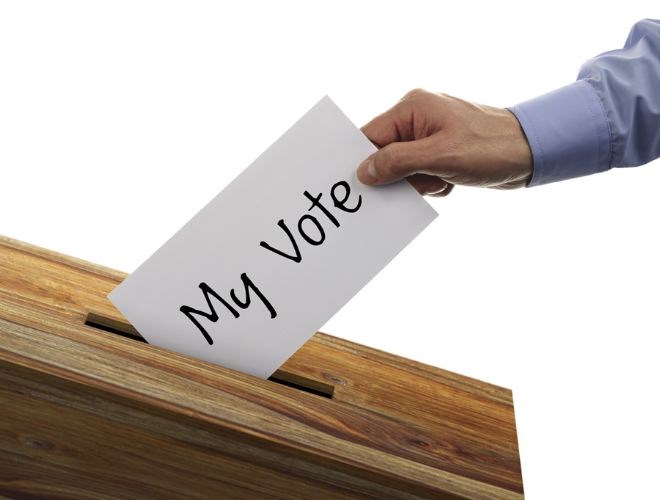This past weekend marked the passing of summer and the beginning of fall.
We are now supposed to put away our barbecues and give up our fizzy summer drinks so we can get down to serious matters such as voting. Our local municipal election is in full swing judging by the number of signs popping up in strange places.
Here is a thought for electoral reform: instead of each candidate putting up signs, why not simply have a common brochure with all of the candidates for all of the positions listed and sent to each home in the electoral district?
Each candidate would be allowed some number of words (say, 100) to explain the key points of their platform. This would effectively lead to 100 per cent saturation and need only one "sign."
On the heels of the municipal election, we will be asked to vote in a referendum on proportional representation (PR). It will be a mail-in ballot which is problematic to say the least. How will Elections BC ensure each ballot is filled in by the registered voter to whom it is addressed?
Logistics of doing a referendum this way aside, I still maintain the results will not fix the issues people have with our electoral system. It is not how we vote which is the problem, but what happens after we vote where people truly have the issue.
I gave a talk recently on electoral reform and asked the audience what issues switching to electoral reform will fix? There were a number of thoughtful responses but none convinced me PR will be the Holy Grail.
The notion it leads to fewer wasted votes is perhaps the most pervasive rationalization I have heard for a PR system.
This is predicated on a bit of straw man argument because it assumes anyone who voted for a candidate who doesn't win wasted their votes. Not true. Or, at least, not true in my understanding. The whole point of any race - be it a horse race, a game of Jeopardy, or a chess match - is to finish first and beat your competitors.
However, the competition must still show up for it to be a race.
And just because you might not win is not a reason to not show up. Indeed, competing is a reward unto itself.
Imagine if Tiger Woods - who hadn't won a golf tournament in five years - had said to himself "Well, I probably won't win the Tour Championship so there is no point in even trying. I would be just wasting my time."
If he had, we wouldn't have had the glorious scene of Tiger leading the throngs in a march down the 18th fairway as he went on to win this past weekend.
And the other 29 golfers who competed in the tournament likely didn't say "Oh well, I wasted my time trying because I didn't win." Nor did their fans feel robbed of their moment because their favorite golfer didn't hoist the trophy.
Voting is a right. It is something we get to do. We have a say in who will represent us in the legislature. And we need to exercise our franchise. But in doing so, we are competing with others who will be doing the same thing. This means sometimes we will not win. That, however, is not a wasted vote.
Nor is it the reason voter turnout is low in Canada. People are indifferent to politics, period. It is not because they don't think a particular candidate is able to win but because they don't see the point in any of the candidates winning.
I have yet to meet someone who didn't vote because they thought their candidate wouldn't win.
Simply put, there are no wasted votes so the argument to switch to PR on the basis of fewer wasted votes is fallacious.
At the talk, other reasons people gave for PR was it would lead to coalition governments and more ideas being discussed. Possibly, although any politician who has served will tell you the discussion and rancor in caucus meetings can be quite contentious as MLAs and MPs hammer out their party's position. It is only smooth sailing in public forums.
Former prime minister Jean Chretien, in a recent interview, pointed out under our present system he had a much more diverse caucus with everything from conservatives to extreme leftists sitting as MPs. This wouldn't happen under a list PR system where the candidates are appointed by the party brass based on their service to the party. A List-PR system pretty much ensures each candidate toes the party line.
But to paraphrase Winston Churchill, I would contend a single member plurality is the worst form of democracy except for all the others.
The real issue isn't how we elect our representatives. It is in ensuring our representatives are accountable.



